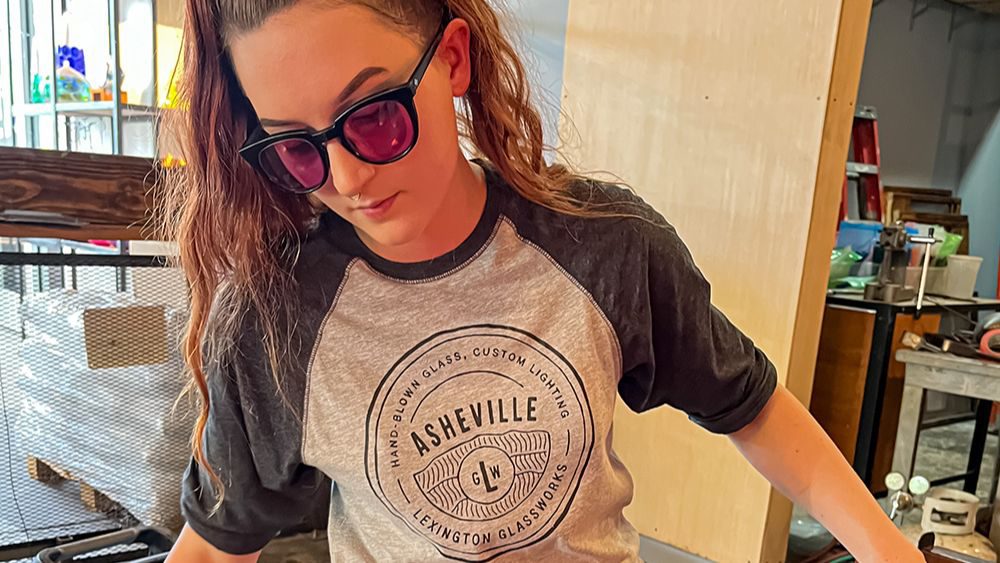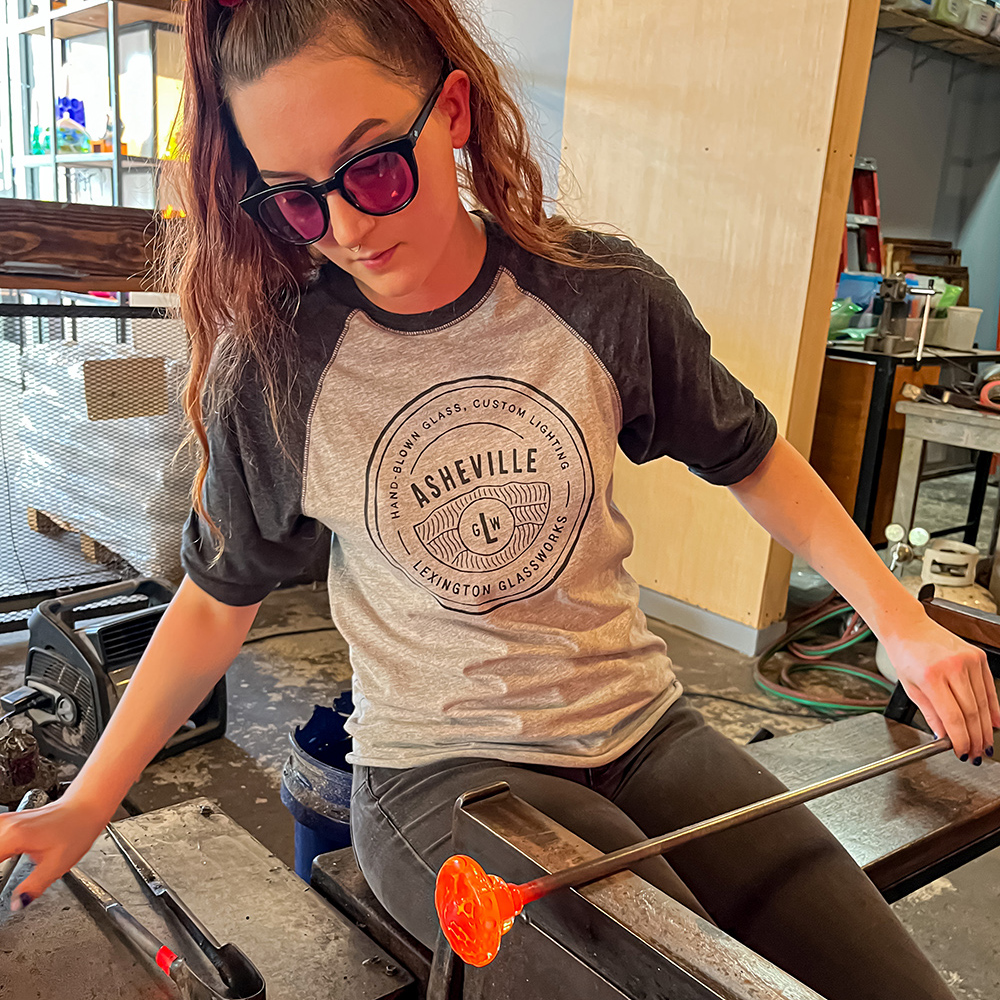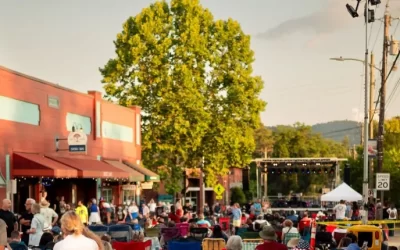

Resident assistant Sam Parker, photo courtesy of Lexington Glassworks
How Lexington Glassworks Opens Doors for Emerging Artists
Housing provided for the Resident Assistantship program removes affordability barriers
April 2, 2024 | As part of our continuing series profiling pioneering creative spaces in Buncombe County, we are highlighting Lexington Glassworks, a nationally-acclaimed center for glassblowing and lighting design that opened in January 2015.
After successfully running a 5,000-square-foot studio in the heart of downtown Asheville for years, Lexington Glassworks announced the creation of the LGW Design Studio in 2022, which hosts a Resident Assistantship program for glassblowers. Along with receiving a stipend, training, and networking opportunities, residents receive housing: a one-bedroom apartment in a building less than a mile from the space. The program has allowed emerging glassblowers from all over the country to pursue their passion and get hands-on training without being burdened by high costs of housing in Asheville and Buncombe County.
For the team at Lexington Glassworks, the decision to offer housing to residents was not just practical, it was necessary. “We wanted to be able to bring young artists here to work for us without the roadblock of trying to find affordable housing here,” says Marketing Director and Business Manager Ashleigh Hardes Koslow. “We were finding it hard to attract people. Taking housing out of the equation levels the playing field and helps us get different people here.”
Residents must have at least one year of hot shop experience, but Koslow notes that most had previously set aside their passion for glass to make ends meet. “We’ve been able to put them back into the studio, get their hand skills tight, give them a lot of hands-on experience, and put them into a networked community of artists to get them back into this job market,” she shares.
Being landlords was not something Lexington Glassworks’ founders intended, but the opportunity to purchase a historic building downtown felt aligned. “Obviously we’re an art studio,” says Koslow, “and we don’t have a ton of expendable income to buy a building, but we knew that we wanted to be able to offer single occupancy housing for our residents.” The building, which is over 80 years old, has five fully furnished one-bedroom units. Two are reserved for residents. The others, in a stroke of serendipity, were already rented by other artists working in the community.
Koslow notes that the team was a bit unprepared for some of the challenges of property management, particularly when it came to navigating the legal and financial side of things. When they realized their usual networks didn’t have much advice, they hired a lawyer to help them get through the complexities and red tape. “How do you balance running a small business with also being a fair and good landlord?” Koslow muses. “It can be a double-edged sword. It’s been a lot of ‘boots on the ground,’ getting our hands dirty, and spending time with the tenants. Nobody teaches you how to be a landlord.” So far, the team has renovated two apartments and replaced the heating system, while also maintaining rent levels for the original tenants.
The payoff, Koslow says, is worth it. She points to the fact that multiple former Lexington Glassworks employees and residents have stayed in Asheville, and several have started their own studios or become teaching artists. “At Lexington Glassworks, one of our values is ‘open door culture,’” she says. “We are moving into our tenth year and we believe in cultivating the glass community here. We’ve been able to be an incubator for people who then go on to do something for themselves, which in turn grows that community.”
For Lexington Glassworks, this phase is the culmination of years spent visioning what the local landscape could be. “It’s about being able to inject this talent and creativity back into the community in different ways,” Koslow continues. “We didn’t know quite how we were going to accomplish that when we first opened. But slowly and organically, we are finding ways to do it.”
Lexington Glassworks has also been able to host people coming to work with other local arts organizations in the building. “There are a lot of organizations interested in providing housing for people who could offer enrichment to the community,” she says. “There is a lot of opportunity out there for creative solutions.”
Stay tuned for more profiles of creative spaces, and for ArtsAVL’s Creative Spaces Report, which will assess the local creative landscape to provide crucial information for understanding the current reality and possible paths forward for the creative community. Visit artsavl.org/spaces for project updates and register for the upcoming Town Hall (May 10).
Related Articles
All Arts. All Ways. NORTH: Creativity, Craftsmanship, and Community
All Arts. All Ways. NORTH: Creativity, Craftsmanship, and Community Weaverville, Woodfin, and...
Keeping Art at the Heart of Your Valentine’s Plans
Keeping Art at the Heart of Your Valentine’s PlansFrom Galentine’s gifts to couples crafting,...
Local Arts News
Local Arts News We're collecting recent stories from around the web about the local arts scene....



